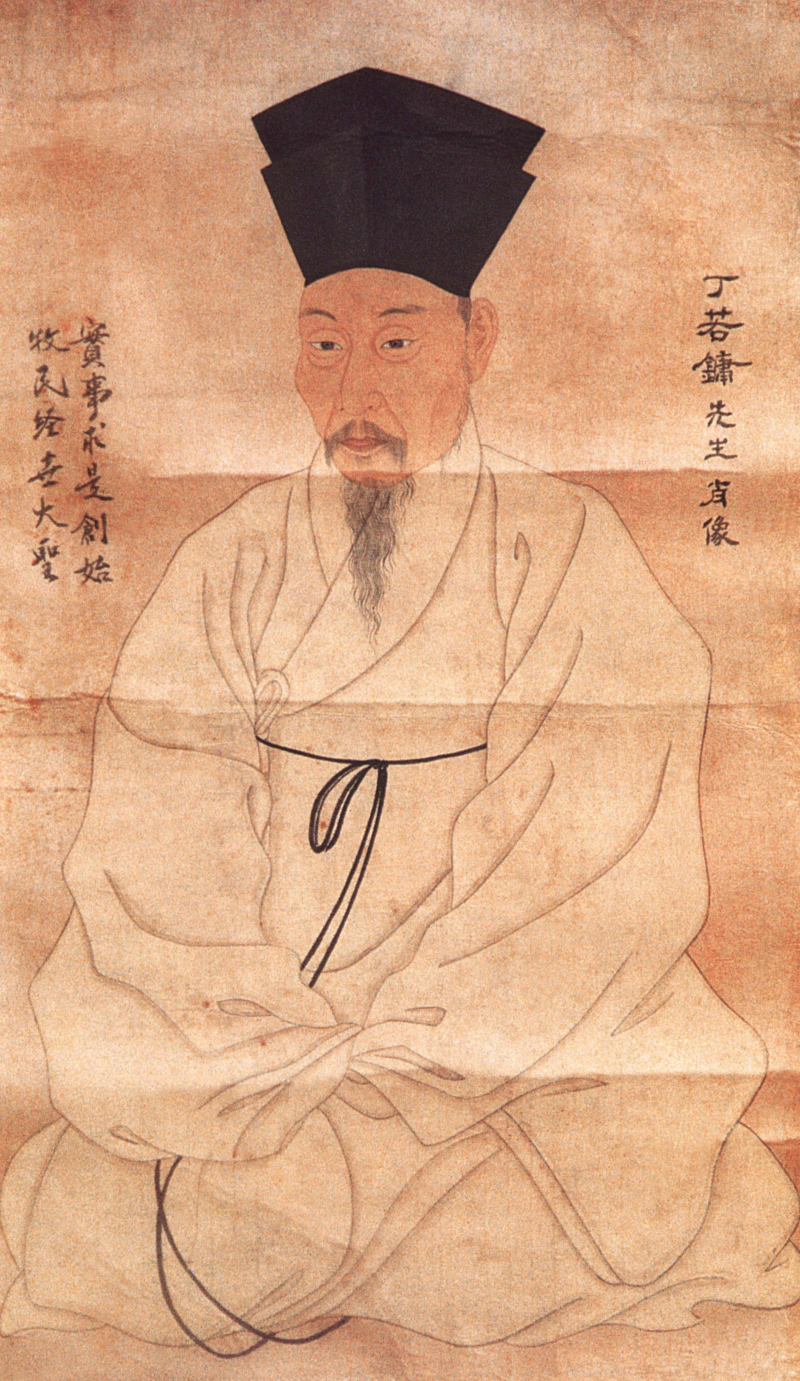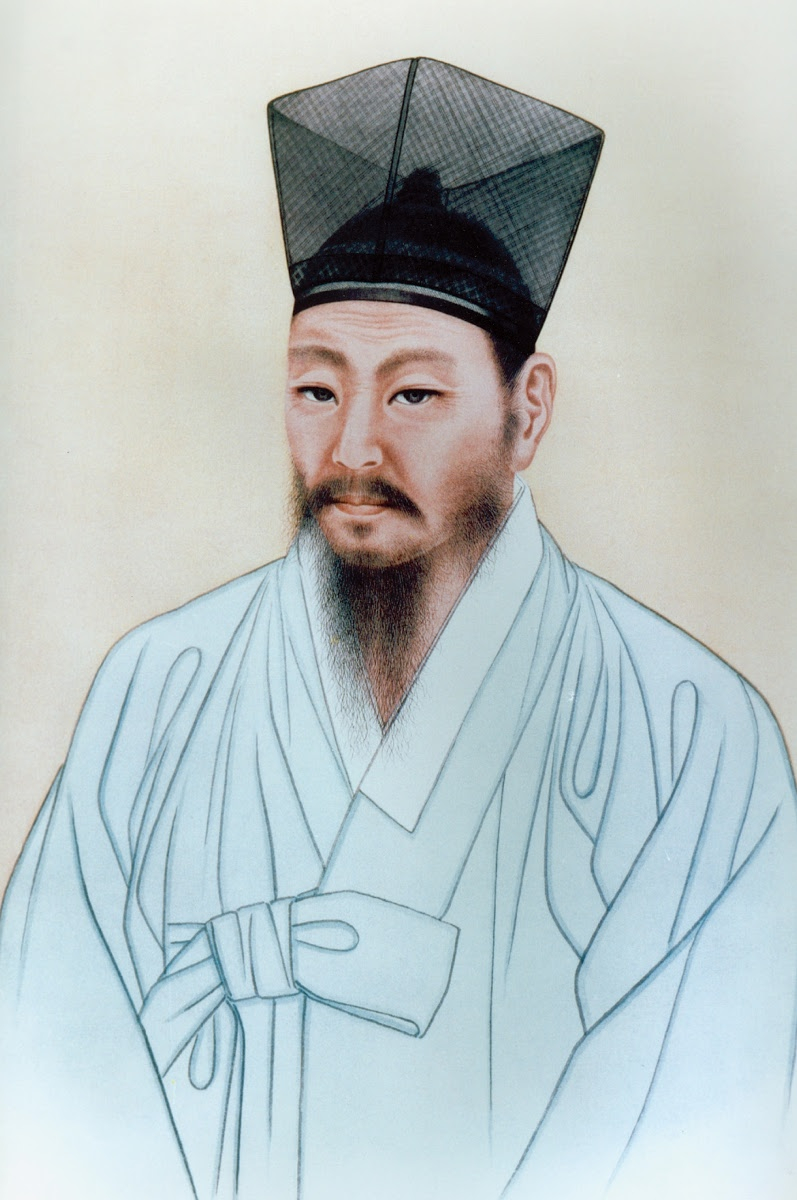Jeong Yak-yong
Jeong Yak-yong, sometimes known as Chong Yagyong, was a Korean agronomist, philosopher, and poet. He lived from 5 August 1762 to 7 April 1836 and was frequently referred to as "Dasan" (pen-names that means "the mountain of tea"). Jeong is best known for his work in synthesizing middle Joseon dynasty Neo-Confucian thought. During this time, he wrote extensively in a variety of fields, including law, political theory, and Korean Confucian classics. He aimed to restore Korean Confucian scholarship to a direct connection with Confucius' original thought. This return to the classics was dubbed "Susa" learning (수사, 洙泗), after the two rivers that ran through Confucius' homeland.
He was one of the finest philosophers of the later Joseon era, published books with enormous influence on philosophy, science, and political theory, held important administrative positions, and was a well-known poet. His philosophical perspective is frequently associated with the Silhak (practical learning) school, and his concerns are best understood as explorations of Neo-Confucian themes. He was a close confidant of King Jeongjo (reigned 1776–1800).
Jeong was born in Gwangju, Gyeonggi Province, and he passed away there. Due to his affiliation with the Southerners (Nam-in) side and the Catholic faith of his older brother, he spent 18 years in exile in Gangjin County, South Jeolla Province, from 1801 to 1818. There is no official documentation to support the assertion made by Korean Catholics that Jeong was baptized under the name John Baptist. He was from the Naju Jeong family.
Birthdate: August 5, 1762
Birthplace: Gwangju, Gyeonggi Province, South Korea
Died: April 7, 1836












